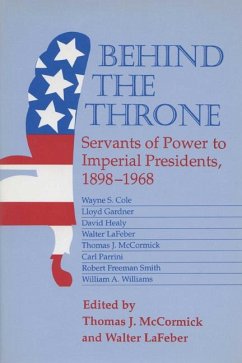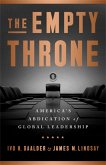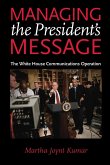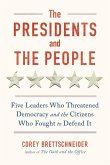During the American rise to world power in the last hundred years, a new presidency has also arisen, a presidency that uses military, economic, political, and personal power that the constitutional founders of the 1780s would have thought highly improbable and dangerous. Behind the Throne argues that United States presidents have received foreign policy advice from a new breed of government servants whose first loyalties were to the chief executive, not the bureaucracy or the public. These "servants of power" defined world views for the president, not only advising but often taking action to implement those world views. The essays in this volume focus on nine servants of power. Brooks Adams, brother of Henry Adams and advisor to Presidents McKinley and Roosevelt, greatly influenced early American expansionist thinking by supporting Frederick Jackson Turner's Frontier Thesis. Charles Conant, in the same era, profoundly affected America's economic relationship with Asia and Latin America. During the Wilson administration, Admiral William Caperton's views influenced foreign policy in the Caribbean and Latin America. Controlling J. P. Morgan's overseas investments, Thomas Lamont had direct access to and considerable influence upon every president in the 1920s and 1930s. Adolf Berle, advisor to Franklin Roosevelt, guided the United States' economic and security policies for the post-World War II era, preparing the way for both the World Bank and the International Monetary Fund. As members of the Senate Foreign Relations Committee, Senator Arthur Vandenberg and Senator Gerald P. Nye championed United States isolationist policies in the early years of the cold war. Vandenberg later turnedinternationalist and used his position as ranking Republican on the Committee to promote President Truman's foreign policies in Congress. His advice to Truman was crucial in the founding of the United Nations and the Organization of American States. Thomas Mann, Undersecretary of State for Latin American affairs in the Kennedy and Johnson administrations, was instrumental in turning the United States away from the Alliance for Progress and back to a hard-line policy. A former Harvard dean, McGeorge Bundy influenced the Kennedy-Johnson experiments in global social engineering and the escalation of the Vietnam War. The rise of the United States to the status of the world's lone (and often highly perplexed and frustrated) superpower cannot be understood without understanding these nine influential men and their roles in recent American history. The volume also stands as a tribute to Fred Harvey Harrington, professor of history and former president of the University of Wisconsin-Madison. All of the contributors began their distinguished careers as students of Harrington.
Hinweis: Dieser Artikel kann nur an eine deutsche Lieferadresse ausgeliefert werden.
Hinweis: Dieser Artikel kann nur an eine deutsche Lieferadresse ausgeliefert werden.








